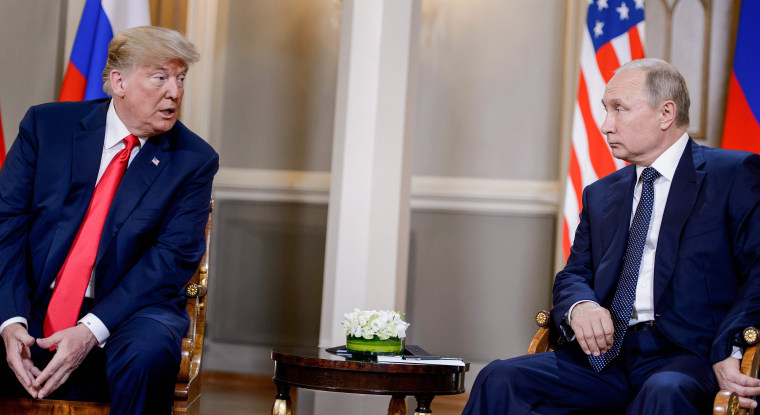There was no shortage of Republican reactions to Donald Trump's stunning summit with Vladimir Putin, in which the American leader sided with the Russian president over his own country. Much of Trump's party was ... not pleased.
Sen. John McCain (R-Ariz.) went the furthest, calling Trump's appearance in Helsinki "one of the most disgraceful performances by an American president in memory." The ailing GOP senator added, "No prior president has ever abased himself more abjectly before a tyrant."
On the other end of the spectrum, there was Sen. Rand Paul (R-Ky.) who actually defended Trump's efforts. The Kentucky Republican's comments came a day after he dismissed the importance of Russia's attack on the United States, and coincided with Paul's announcement that he's planning his own diplomatic mission to Russia.
In general, most GOP officials were closer to McCain than Paul in their reactions, but the importance of their rhetoric is limited. What matters more, of course, is what Republicans intend to do about these developments. Politico's "Playbook" reported this morning that there was a "general consensus" on Capitol Hill yesterday that Donald Trump "thoroughly embarrassed the United States." The president's party, however, seems uncertain about how, and whether, to act.
...Privately, senior-level Republican aides and lawmakers had a second message: what the hell do you want us to do? [...]At the end of the day, senior Republican aides and lawmakers told us yesterday, it's up to the president to conduct foreign policy.... Congress is not going to do anything substantive. They have no idea what more they should be doing.
With this in mind, some Senate Republicans are reportedly eyeing a non-binding, symbolic resolution that would endorse the intelligence community's findings related to Russian intervention in the 2016 elections.
If that sounds inadequate, that's because it is.
I don't imagine congressional GOP leaders are looking for my strategic advice, but if Republicans are seriously interested in meaningful action, they have options.
They could launch hearings and demand testimony from White House officials to explain how, exactly, yesterday turned into the "Surrender Summit." They could announce that Trump's Supreme Court nominee will advance only after Congress has received detailed answers.
They could pass legislation to protect Special Counsel Robert Mueller -- and if Trump vetoes it, they could override him. They could move to obtain and release the president's tax returns.
And they could move forward on all of these fronts today.
Quinnipiac released a poll two weeks ago that asked respondents, "Would you like to see Congress be a check on President Trump?" It found that 71% of Americans -- including a narrow majority of Republican voters -- said yes, Congress should be a check on the White House.
With this in mind, there may be an important electoral angle to yesterday's fiasco: voters who want to see Trump constrained will need to elect a very different Congress than the one that currently exists.
At an event a couple of months ago, House Speaker Paul Ryan (R-Wis.) warned that if Democrats gain any power, they'd conduct aggressive oversight of the Trump administration, complete with subpoenas.
After yesterday, I'm not sure who, exactly, would consider that a bad thing.
